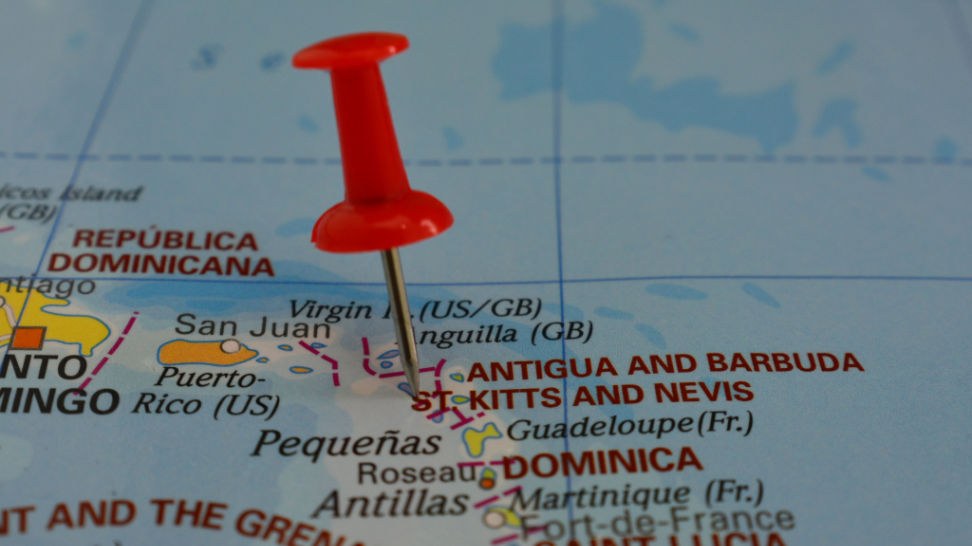When you hear the term “offshore trust,” chances are you associate it with depictions of offshore trusts in media and TV: illegal, secretive financial dealings the wealthy use to avoid paying taxes. However, you may be surprised to discover that these depictions are inaccurate. Offshore trusts are an entirely legal means of asset protection that you can use to preserve your financial security and gain investment freedom.
This article will discuss setting up an offshore trust, the requirements and costs, and navigating your tax responsibilities. With this crucial information in mind, you may feel more equipped to decide whether an offshore trust is a viable financial solution for you.
How Do I Set Up an Offshore Asset Protection Trust?
Setting up an offshore trust is similar to setting up a domestic trust. First and foremost, you’ll need an asset protection attorney to help you navigate the process. Your attorney will handle the responsibilities of establishing your trust and making the proper introductions to offshore providers who can help to safeguard your assets. Generally, your attorney will assist you with the initial setup and ongoing maintenance.
However, you must familiarize yourself with the process to make informed decisions regarding your offshore trust. Most often, setting up offshore asset protection trusts involves five critical steps.
Choosing an Offshore Jurisdiction
To begin, you’ll need to research common offshore trust jurisdictions to find which one is right for you. The final decision may come down to personal preference and the features you’re most comfortable with, but generally, a suitable jurisdiction will have the following qualities:
- Common-law system: Offshore trusts—and trusts in general—are based on English common law. For simplicity and clarity’s sake, the best offshore trust jurisdiction will usually be one of the foreign jurisdictions with a legal system based on English common law.
- Favorable tax laws: Jurisdictions that include inheritance tax and income tax in offshore asset protection trusts may not provide the benefits you need, as income taxation will add to your overall tax burden. It’s best to choose a foreign country that doesn’t have income or estate taxes to protect your trust’s assets.
- Favorable litigation laws: Another critical aspect of asset protection includes choosing an offshore jurisdiction that will benefit you in the event of legal liability. Many offshore jurisdictions go to great lengths to protect defendants, sometimes requiring creditors to put forth bonds of up to $100,000 before they can bring their lawsuits in local courts.
- Stable economy: One of the many benefits of offshore trust formation is having a backup plan in case the economy goes south at home. By using a foreign bank account, you’re working to ensure your financial future and security. Ideal offshore trust jurisdictions will have a stable economy that you can rely on should the economy suffer significant losses.
Choosing a Foreign Trust Company

The next step in setting up your offshore trust is selecting a foreign entity to be your offshore trustee. It’s necessary to select a trustee company in your chosen jurisdiction. In this digital age, finding information on offshore trustee companies is easier than before, and you can use the recommendation of an experienced attorney to help determine whether or not an offshore trust company is right for you.
Deciding Trust Structure
When securing your offshore assets, you have several options regarding structure and asset protection provisions. These options include:
- One offshore trust structure is the use of an offshore bank account. You’ll need a bank reference letter from your chosen domestic financial institution to set up this account, as well as a small amount of money to establish your trust. Once you create your account, you will be able to receive money from it through a request to your trustee and you’ll maintain control over investments decisions.
- The other option is to use an offshore limited liability company. Like the first option, you use a small amount of money to establish your trust. Then, your trustee company will set up a limited liability company in your chosen jurisdiction, allowing you to transfer assets to and from the LLC accounts. This setup offers you complete control of your trust assets.
What Are the Requirements Needed for Setting Up Offshore Asset Protection Trusts?

The Internal Revenue Service has strict tax rules and legal requirements for establishing an offshore trust, and offshore companies will perform background checks on you and all the beneficiaries of your trust. Your asset protection attorney can help you gather the necessary trust documents and navigate this process.
First, you’ll need to designate a “U.S. agent” for your offshore trust. This agent will provide information about your offshore trust and financial accounts to the IRS. Following the appointment of your U.S. agent, you’ll file for a unique U.S. Tax Identification Number for your offshore trust.
Your attorney will help you draft the remaining legal documents, including the agreement for your offshore trust, the solvency trust information document, and your personal tax return. Having an offshore trust will require taxing reporting, however, it will generally not change your overall tax liability.
What Is the Cost of Opening Offshore Trusts?
The total cost of opening offshore trusts depends on a few key factors. Namely, the cost will depend on your chosen offshore company or legal entity and your established agreement. Including trustee expenses, annual fees, and any customizations you make to your offshore trust, the total cost will usually fall somewhere between $15,000 and $50,000.
How Are Offshore Trusts Taxed?

An offshore trust is usually a tax neutral vehicle. This means that an offshore trust will neither increase nor decrease your overall tax liability.
However, taxation requirements remain fairly strict for your worldwide income. Likewise, offshore trusts don’t offer increased privacy, as the IRS requires reporting. You must report your trust income and all assets transferred to your trust to the IRS, filing any necessary forms to calculate your income taxes accurately.
Frequently Asked Questions
Below are some of the most frequently asked questions about offshore trusts.
What Is an Offshore Trust?
Someone looking to open an offshore trust will establish a trust in a country outside of the U.S. This process involves selecting a trustee to manage one’s assets. Doing so may allow specific individuals to protect their financial futures better and avoid unnecessary risk from occurrences that happen in their home country.
Which Country Offers the Best Offshore Trust?

Individuals looking to set up an offshore trust have many jurisdiction options available. Your attorney can provide you with professional insights. Overall, three of the most common jurisdictions that grantors choose include:
- Cook Islands
- Nevis
- Belize
What Types of Assets Can You Hold in an Offshore Trust?
Like domestic trusts, offshore trusts can hold a wide variety of assets, and your trust agreement offers asset protection for anything you place in your offshore trust. Likewise, you can hold your assets anywhere on the globe, depending on your chosen jurisdiction.
Possible assets may include any of the following items:
- Stocks
- Cash
- Bonds
- Cryptocurrency and other Digital Assets
- Real estate
Consult an Offshore Trust Attorney Today
We provide clients with comprehensive offshore asset protection services at Blake Harris Law. With many years of asset protection experience, Attorney Blake Harris can advise you on how to set up an offshore trust properly and safely while assisting in the legal side of the process.
Contact Blake Harris Law by filling out our contact form to get started today.


